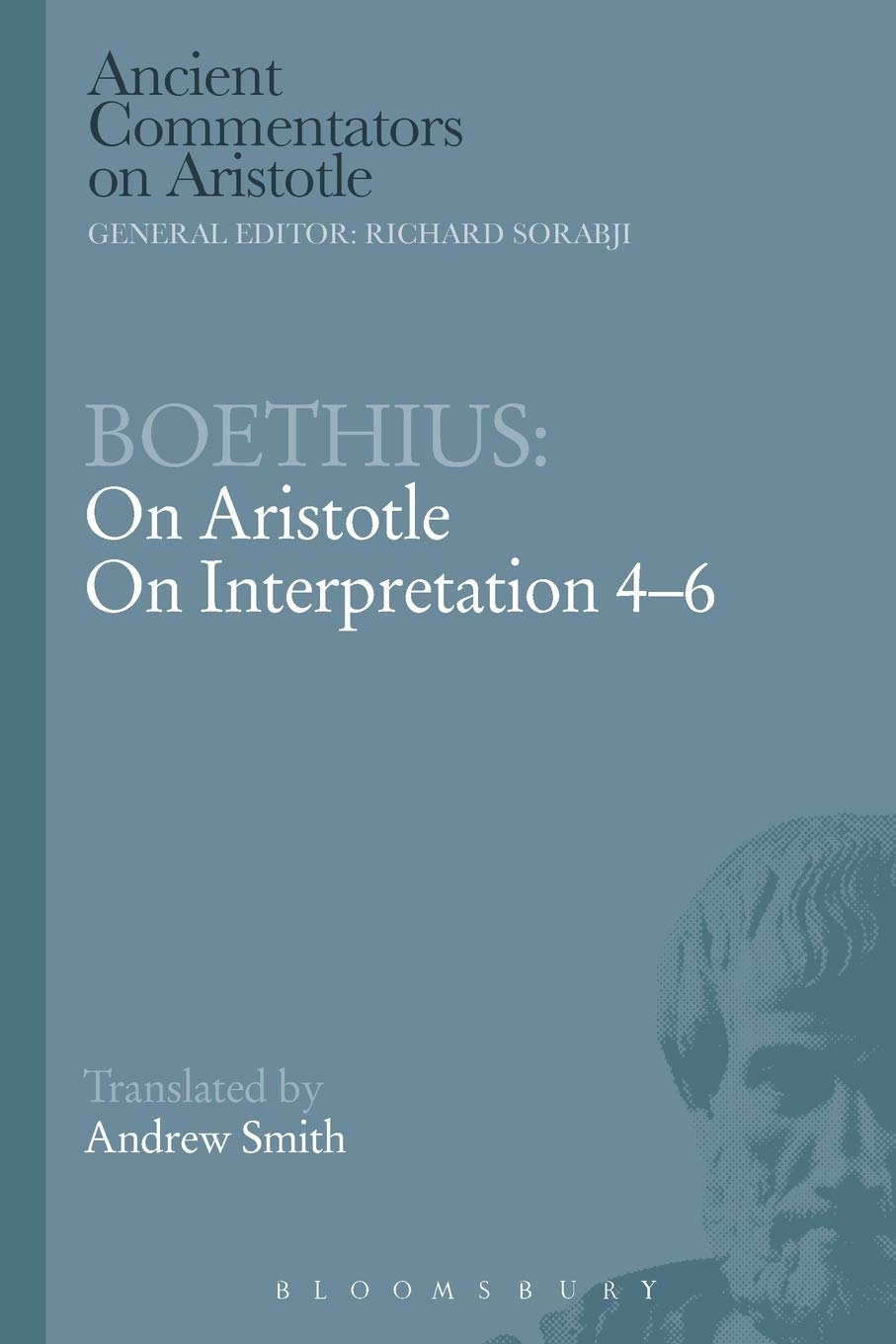Newly released
This book is new and will be uploaded as soon as it becomes available to us and if we secure the necessary publishing rights.

Boethius: On Aristotle on Interpretation 4-6 Book PDF
(0)
Author:
BoethiusNumber Of Reads:
77
Language:
English
Category:
literatureSection:
Pages:
160
Quality:
excellent
Views:
1081
Quate
Review
Save
Share
Book Description
Boethius (c. 480-c. 525) was a Christian philosopher and author of many translations and works of philosophy, most famously the Consolations of Philosophy which were probably written when he was under house arrest, having been accused of treason by King Theoderic the Great. He was subsequently executed. On Interpretation is the second part of the Organon, as Aristotle's collected works on logic are known; it deals comprehensively and systematically with the relationship between logic and language. In his first six chapters, Aristotle defines name, verb, sentence, statement, affirmation and negation. Boethius preserves lost interpretations by two of the greatest earlier interpreters, Alexander and Porphyry, and the defence of the work's authenticity against criticism. He records the idea of Porphyry that Aristotelians believe in three types of name and verb, written, spoken and mental, in other words a language of the mind. Boethius' commentary formed part of his project to bring knowledge of Plato and Aristotle to the Latin-speaking world. It had great influence, remaining the standard introduction to On Interpretation throughout the Latin Middle Ages.
Boethius
Anicius Manlius Boethius was a Roman senator, consul, magister officiorum, historian, and philosopher of the Early Middle Ages. He was a central figure in the translation of the Greek classics into Latin, a precursor to the Scholastic movement, and, along with Cassiodorus, one of the two leading Christian scholars of the 6th century. In 1883, Pope Leo XIII sanctified him as a saint within the Diocese of Pavia, where he is buried.
Boethius was born in Rome a year after the collapse of the Western Roman Empire. A member of the Anici family, he was orphaned following the family's sudden decline and was raised by Quintus Aurelius Memmius Symmachus, a later consul. After mastering both Latin and Greek in his youth, Boethius rose to prominence as a statesman during the Ostrogothic Kingdom: becoming a senator by age 25, a consul by age 33, and later chosen as a personal advisor to Theodoric the Great.
In seeking to reconcile the teachings of Plato and Aristotle with Christian theology, Boethius sought to translate the entirety of the Greek classics for Western scholars. He published numerous transcriptions and commentaries of the works of Nicomachus, Porphyry, and Cicero, among others, and wrote extensively on matters concerning music, mathematics, and theology. Though his translations were unfinished following an untimely death, it is largely due to them that the works of Aristotle survived into the Renaissance.
Despite his successes as a senior official, Boethius became deeply unpopular among other members of the Ostrogothic court for denouncing the extensive corruption prevalent among other members of government. After publicly defending fellow-consul Caecina Albinus from charges of conspiracy, he was imprisoned by Theodoric around the year 523. While jailed and suffering from depression, Boethius wrote De consolatione philosophiae a philosophical treatise on fortune, death, and other issues—which became one of the most influential and widely-produced works of the Early Middle Ages. He was tortured and executed in 524, becoming a martyr in the Christian faith.
Book Currently Unavailable
This book is currently unavailable for publication. We obtained it under a Creative Commons license, but the author or publisher has not granted permission to publish it.
Rate Now
5 Stars
4 Stars
3 Stars
2 Stars
1 Stars
Boethius: On Aristotle on Interpretation 4-6 Quotes
Top Rated
Latest
Quate
Be the first to leave a quote and earn 10 points
instead of 3
Comments
Be the first to leave a comment and earn 5 points
instead of 3